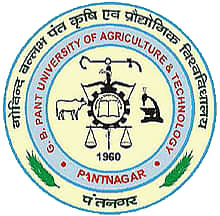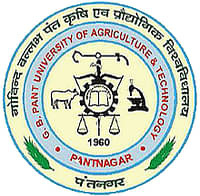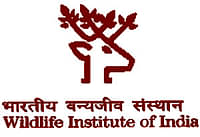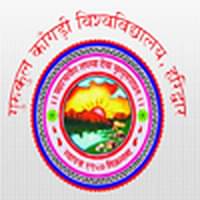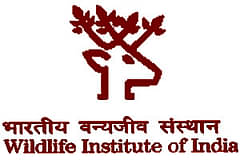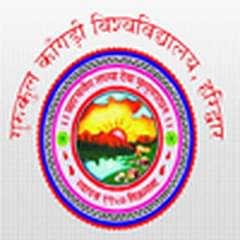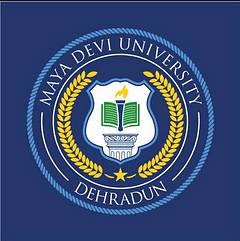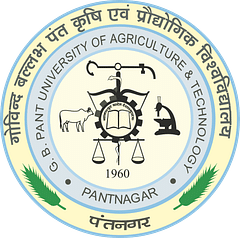GBPUAT : College of Fisheries BFSc Courses & Fees 2023
GBPUAT : College of Fisheries offers a 4 Years BFSc for Science aspirants. GBPUAT : College of Fisheries Bachelor of Fisheries Science admission 2023 is based on ICAR AIEEA. Students who passed 12th can apply for the GBPUAT : College of Fisheries admissions.
The GBPUAT : College of Fisheries BFSc course fee is 100,000 INR (Yearly).
1 Course is offered by GBPUAT : College of Fisheries
Bachelor of Fisheries Science
GBPUAT : College of Fisheries BFSc Highlights 2023
| Highlights | Details |
| Duration | 4 Years |
| Annual tuition fee | 100,000 USD (Yearly) |
| Eligibility criteria | To pursue a Bachelor of Fishery Science (B.F.Sc.) degree at GBPUAT: College of Fisheries Udham Singh Nagar, candidates must meet certain eligibility criteria. Applicants should have completed their 10+2 education with a science background, including subjects such as Physics, Chemistry, and Biology. Additionally, they should have obtained a minimum aggregate score of 50% in their qualifying examination. It is important for candidates to have a genuine interest in the field of fisheries and aquaculture, as well as a passion for marine life and its conservation. Meeting these eligibility requirements will enable aspiring students to embark on a rewarding academic journey in the field of fishery science at GBPUAT: College of Fisheries Udham Singh Nagar. |
| Accepted entrance exams | ICAR AIEEA |
GBPUAT : College of Fisheries BFSc Admission 2023
GBPUAT : College of Fisheries BFSc seats are filled on the basis of ICAR AIEEA. Candidates need to meet the basic eligibility criteria related to qualifying marks, age, subjects studied for GBPUAT : College of Fisheries BFSc admission.
For a comprehensive awareness of the fees, eligibility criteria of BFSc at GBPUAT : College of Fisheries, and the selection process for admission, refer to the table below.
GBPUAT : College of Fisheries BFSc Admission 2023 - Eligibility & Selection Criteria
| Degree | Eligibility Criteria | Tuition Fees |
| BFSc | To pursue a Bachelor of Fishery Science (B.F.Sc.) degree at GBPUAT: College of Fisheries Udham Singh Nagar, candidates must meet certain eligibility criteria. Applicants should have completed their 10+2 education with a science background, including subjects such as Physics, Chemistry, and Biology. Additionally, they should have obtained a minimum aggregate score of 50% in their qualifying examination. It is important for candidates to have a genuine interest in the field of fisheries and aquaculture, as well as a passion for marine life and its conservation. Meeting these eligibility requirements will enable aspiring students to embark on a rewarding academic journey in the field of fishery science at GBPUAT: College of Fisheries Udham Singh Nagar. | 100,000 USD (Yearly) |
GBPUAT : College of Fisheries BFSc Application Process 2023
ICAR AIEEA application form can be filled in Online. Aspiring candidates can fill out the GBPUAT : College of Fisheries BFSc application form on the www.gbpuat.ac.in of GBPUAT : College of Fisheries
Follow the given steps to understand BFSc application process of GBPUAT : College of Fisheries :
- Step 1: Visit the official website of GBPUAT : College of Fisheries and locate the registration tab.
- Step 2: Now click on the registration tab and provide the necessary details to create a profile.
- Step 3: Upon successful registration, a confirmation message will be sent to the registered email ID and mobile number.
- Step 4: At the next stage, pay the registration fee to access the E-Prospectus.
- Step 5: Post successful fee payment, the application process is completed.
Documents required for GBPUAT : College of Fisheries BFSc Admission
- Marks sheet of class 12th standard
- Marks sheet of class 10th standard
- Transfer certificate (if required)
- Character certificate
- Passport-size photographs
GBPUAT : College of Fisheries BFSc Fees 2023
GBPUAT : College of Fisheries BFSc fees for all BFSc specialisations is 100,000 USD (Yearly).
GBPUAT : College of Fisheries BFSc Fees
| Course | Duration | Total Tuition Fees |
| Bachelor of Fisheries Science | 4 Years | 100000 USD |
GBPUAT : College of Fisheries BFSc Selection Process 2023
GBPUAT : College of Fisheries BFSc selection process includes stages like filling the application form, appearing for the ICAR AIEEA and participating in the counselling process.
Check the stepwise selection process here:
- Register for ICAR AIEEA
- Take ICAR AIEEA
- Based on ICAR AIEEA results, students need to register for GBPUAT : College of Fisheries BFSc counselling
GBPUAT : College of Fisheries BFSc Ranking 2023
GBPUAT : College of Fisheries BFSc Rankings are released by various govt & private agencies/organisations like NIRF, India Today, The WEEK, Outlook, Business Standard, QS Rankings, etc to rank the GBPUAT : College of Fisheries on various parameters including quality of education, overall development of the students, placements, curriculum, facilities, labs, faculty-students ratio, etc.
GBPUAT : College of Fisheries BFSc Placement 2023
In 2023, the median salary package of GBPUAT : College of Fisheries BFSc students is 455000.0 INR.
GBPUAT : College of Fisheries, Science Placements 2023
| Specialization | Median Salary |
| Bachelor of Fisheries Science | 455000 INR |
GBPUAT : College of Fisheries BFSc Admission 2024
Admission to the BFSc at GBPUAT : College of Fisheries is subject to meeting the eligibility criteria and the candidates have to secure a valid score in ICAR AIEEA. All shortlisted candidates have to complete the GBPUAT : College of Fisheries BFSc admission process by getting their documents verified and paying the admission fee.
Important Dates for BFSc Admission at GBPUAT : College of Fisheries 2024
ICAR AIEEA Important Dates| Event Name | Date |
| Official Notification Date | 01 Feb 2025 - 01 Feb 2025 |
| Registration Date | 01 Feb 2025 - 01 Apr 2025 |
| Admit Card Date | 01 May 2025 - 01 May 2025 (TENTATIVE) |
| Exam Date | 01 May 2025 - 01 May 2025 (TENTATIVE) |
| Result Date | 01 Jul 2025 - 01 Jul 2025 (TENTATIVE) |
| Counselling Date | 01 Sep 2025 - 01 Sep 2025 (TENTATIVE) |
GBPUAT : College of Fisheries BFSc Application Process
GBPUAT : College of Fisheries BFSc application form has to be submitted online by visiting the official website. Candidates aspiring to take admission to the BFSc course at GBPUAT : College of Fisheries have to first check and meet the eligibility criteria and then proceed further with the application process.
Steps to fill GBPUAT : College of Fisheries BFSc application form:
- Step 1: Visit the official website of GBPUAT : College of Fisheries and click on ‘apply online’.
- Step 2: Now, you will be redirected to the admission page of GBPUAT : College of Fisheries. Complete the registration process and create a profile.
- Step 3: Fill in all details available in the GBPUAT : College of Fisheries BFSc application form.
- Step 4: Now pay the GBPUAT : College of Fisheries BFSc application fee and click on submit button.
- Step 5: After the submission, keep a hard copy of GBPUAT : College of Fisheries BFSc Application Form.
Documents Required for GBPUAT : College of Fisheries BFSc Admission:
- Marks sheet of class 10th standard
- Marks sheet of class 12th standard
- Transfer certificate (if required)
- Character certificate
- Passport-size photographs
GBPUAT : College of Fisheries Reviews
Overall: In the dimension of higher education, College of fisheries,Pantnagar,stand as crucial institutions dedicated to the study and management of aquatic resources. These specialized institutions play a pivotal role in fostering scientific understanding, sustainable practices, and technological advancements within the fisheries industry. The curriculum of a College of fisheries Pantnagar is meticulously designed to provide students with a comprehensive understanding of aquatic ecosystems, fish biology, aquaculture, and fisheries management. Students engage in theoretical coursework and practical hands-on experiences, gaining insights into the complexities of maintaining ecological balance while meeting the growing global demand for fish and other aquatic products. One key aspect of College of fisheries Pantnagar is the emphasis on research and innovation. Faculty and students collaborate on projects that address pressing issues such as overfishing, habitat degradation, and the impact of climate change on aquatic ecosystems. This commitment to research contributes not only to academic knowledge but also to the development of practical solutions for the sustainable management of fisheries. Hands-on training is a cornerstone of Agricultural Colleges, often involving fieldwork, laboratory experiments, and internships. Students acquire skills in fishery technology, aquaculture practices, and fisheries management strategies. This practical knowledge prepares graduates to enter the workforce with a deep understanding of the challenges and opportunities within the fisheries sector. Furthermore, Fisheries Colleges often collaborate with industry partners, governmental agencies, and environmental organizations. These partnerships facilitate real-world applications of research findings and create a bridge between academia and the professional world. Students benefit from exposure to industry practices and networking opportunities, enhancing their prospects for successful careers in fisheries and related fields. The global significance of fisheries and aquaculture cannot be overstated, as they play a vital role in food security, economic development, and environmental sustainability. Fisheries Colleges, therefore, contribute significantly to addressing these global challenges by producing a skilled workforce equipped with the knowledge and tools needed to navigate the complexities of managing aquatic resources responsibly. In conclusion, Fisheries Colleges serve as specialized hubs of education, research, and practical training, molding future professionals who will contribute to the sustainable development of fisheries and aquaculture. Through their commitment to academic excellence, hands-on learning, and research initiatives, these institutions play a crucial role in shaping a more resilient and sustainable future for our planet's aquatic ecosystems.
Placement: Placements at a Fisheries College mark the culmination of academic endeavors and the beginning of professional journeys for students venturing into the dynamic field of fisheries and aquaculture. These placements serve as a testament to the institution's commitment to producing industry-ready professionals equipped with the knowledge and skills to navigate the challenges of the fisheries sector. The placement process at Fisheries Colleges is a well-organized affair, often facilitated by dedicated placement cells or career services. These units work tirelessly to connect students with a myriad of opportunities in the fisheries industry, aquaculture enterprises, research institutions, governmental bodies, and environmental organizations. The goal is to align students' skills and interests with diverse career paths, ensuring a seamless transition from academia to the professional realm. Industry collaborations play a pivotal role in facilitating placements. Fisheries Colleges actively engage with a network of industry partners, fostering relationships that result in internships, training programs, and eventual job placements for students. This collaboration ensures that the curriculum is attuned to industry needs, making graduates more appealing to potential employers.
Infrastructure: College of fisheries Pantnagar infrastructure is a carefully crafted amalgamation of academia and practicality, reflecting the institution's commitment to fostering a conducive environment for learning, research, and innovation. From cutting-edge laboratories to sprawling aquatic facilities, the physical landscape plays a pivotal role in shaping the educational experience within these institutions. One of the foundational elements of a Fisheries College is its state-of-the-art laboratories. Equipped with modern instrumentation, these spaces provide students with hands-on experiences in fish biology, water quality analysis, and aquaculture techniques. The laboratories serve as incubators for scientific curiosity, allowing students to explore and experiment with the intricacies of aquatic ecosystems. Aquatic facilities, such as fish farms and hatcheries, form the heart of a Fisheries College's infrastructure. These facilities mimic real-world environments, enabling students to gain practical insights into aquaculture practices and fisheries management. The presence of diverse aquatic species within these facilities not only supports academic research but also serves as living laboratories for experiential learning. Classrooms, lecture halls, and seminar rooms are designed to facilitate dynamic and interactive learning experiences. Equipped with multimedia tools, these spaces enable instructors to blend traditional teaching methods with modern technologies, ensuring that students receive a well-rounded education. The design of these classrooms often incorporates elements that symbolize the connection between terrestrial and aquatic ecosystems, creating a thematic coherence with the college's focus. Libraries within Fisheries Colleges house an extensive collection of literature, research papers, and journals related to fisheries science and aquaculture. These repositories of knowledge provide students and faculty with valuable resources for academic pursuits and research endeavors. Additionally, digital libraries and online databases further enhance access to global scientific information, keeping the institution at the forefront of contemporary research. Research centers and institutes within the college campus serve as hubs for innovation and exploration. These specialized spaces bring together faculty, researchers, and students to collaboratively address challenges facing the fisheries industry. The infrastructure of these centers is designed to support diverse research methodologies, from computer modeling to field experiments, fostering a multidisciplinary approach to problem-solving. The overall campus design of a Fisheries College often incorporates green spaces and water features, creating a harmonious blend between the built environment and nature. This intentional integration reflects the college's commitment to sustainability and ecological consciousness. It also provides students with a serene and inspiring atmosphere, conducive to reflection and creative thinking.
Faculty: The faculty at a Fisheries College form the backbone of academic excellence, research innovation, and mentorship within the institution. Comprising seasoned educators, accomplished researchers, and industry experts, the faculty plays a pivotal role in shaping the educational experience and nurturing the next generation of professionals in the field of fisheries and aquaculture. Diversity is a hallmark of the faculty at Fisheries Colleges, bringing together experts with varied backgrounds, specialties, and research interests. This diversity enriches the educational landscape, providing students with a comprehensive understanding of the multifaceted nature of fisheries science. Faculty members often hold advanced degrees and possess extensive field experience, contributing valuable insights to both academic discourse and practical applications. The commitment of the faculty to teaching excellence is evident in their pedagogical approaches. Courses are meticulously designed to blend theoretical knowledge with practical applications, ensuring that students acquire a well-rounded understanding of fisheries science. The faculty's dedication to staying abreast of the latest advancements in the field ensures that students are exposed to cutting-edge research and technologies. Beyond the classroom, faculty members at Fisheries Colleges actively engage in research and scholarly activities. Their contributions to scientific journals, conferences, and collaborative projects elevate the institution's standing within the academic community. This research not only expands the frontiers of knowledge in fisheries science but also provides students with opportunities to participate in real-world research initiatives, fostering a culture of inquiry and exploration. Mentorship is a cornerstone of the faculty-student relationship at Fisheries Colleges. Professors serve as mentors, guiding students in academic pursuits, career planning, and personal development. This close mentorship fosters a supportive learning environment, encouraging students to explore their interests, overcome challenges, and reach their full potential. The mentorship extends beyond graduation, with faculty often remaining valuable resources for alumni as they navigate their careers.
Hostel: The hostel of a Fisheries College stands as more than just a residential facility; it is a vibrant and integral part of the student experience, fostering camaraderie, academic support, and personal growth. The design and ethos of these hostels play a crucial role in creating a holistic environment that complements the educational journey of students pursuing fisheries and aquaculture studies. The architecture of the hostel is often thoughtfully planned to provide a comfortable and conducive living space. Dormitories or rooms are designed with functionality and privacy in mind, offering students a personal retreat after a day of intensive academic and practical engagements. Common areas, such as lounges and recreation rooms, encourage social interaction, allowing students to unwind and build lasting connections with their peers. The hostel's communal spaces also serve as hubs for collaborative learning. Study rooms equipped with resources like computers, reference materials, and projectors become spaces where students engage in group study sessions, share knowledge, and collaborate on academic endeavors. This collaborative environment not only enhances academic performance but also fosters a sense of community among the residents. Hostel life plays a pivotal role in creating a sense of belonging and a supportive network for students. The diversity of backgrounds and interests within the hostel community enriches the overall learning experience, exposing students to different perspectives and cultures. The bonds formed in the hostel often extend beyond academic collaborations, turning roommates and floor mates into lifelong friends and professional connections. Resident advisors or hostel wardens contribute to the well-being of students by providing guidance, support, and mentorship. These individuals play a crucial role in creating a positive living environment, addressing concerns, and organizing activities that promote social interaction and personal development. Their presence adds an extra layer of support for students navigating the challenges of academic life. Furthermore, the hostel is often a venue for extracurricular activities and events organized by student clubs and societies. From academic seminars to cultural festivals, the hostel becomes a dynamic space where students showcase their talents, interests, and passion for the fisheries field. Such events not only add vibrancy to hostel life but also contribute to the overall growth and development of the students. Safety and security are paramount considerations in hostel design and management. Colleges ensure that hostel facilities are equipped with necessary security measures, including surveillance systems and secure entry points. This focus on safety allows students to focus on their academic pursuits without compromising their well-being.
- Colleges in Udham Singh Nagar
- GBPUAT : College of Fisheries
- GBPUAT : College of Fisheries Courses & Fees
- B.F.Sc. (Bachelor of Fishery Science)










